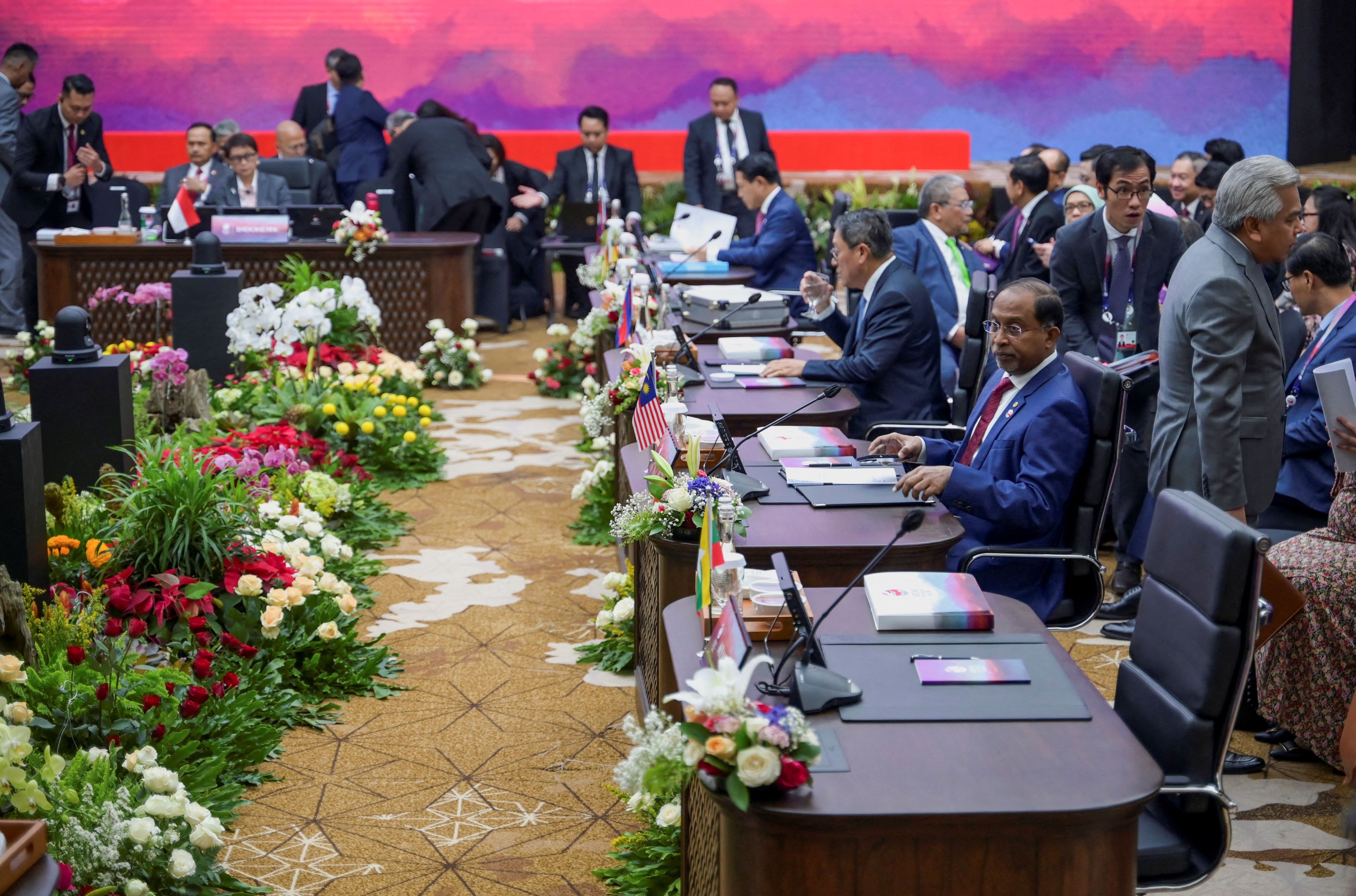
Malaysia called on its Southeast Asian partners on Monday to impose “strong” measures against Myanmar’s ruling generals, saying “obstacles” they created had blocked a peace plan for the strife-torn country.
The unusually blunt message from Malaysia came as top Southeast Asian diplomats met to review their regional bloc’s stalled peace plan for Myanmar, with frustration growing with the military’s failure to end violence more than two years after it seized power in a coup.
“Malaysia and other member countries gave their views that we cannot allow this to continue without strong and effective measures imposed on the junta,” Malaysian foreign minister Zambry Abdul Kadir told reporters after the talks in the Indonesian capital.
He did not identify the other members of the Association of Southeast Asian Nations (ASEAN) who shared his view.
ASEAN leaders are meeting in Jakarta this week to discuss Myanmar, a code of conduct for the South China Sea, the region’s economy, transnational crime and other issues.
Myanmar is a member of ASEAN though its military rulers have been excluded from top bloc meetings since they ousted an elected government led by Aung San Suu Kyi in 2021, triggering violent opposition to their rule.
ASEAN has agreed on a peace plan, known as its five-point consensus, that calls for an end to violence and dialogue among all parties but the generals have paid little more than lip service to it.
Zambry said the peace plan had not been effectively implemented because of “obstacles created by the junta”.
A spokesperson for the Myanmar junta was not immediately available for comment but military leaders reject outside criticism saying they have to act to defend the country from its enemies, both at home and abroad.
The crisis in Myanmar has raised questions about the effectiveness and unity of the politically diverse ASEAN grouping, founded at the height of the Cold War in the 1960s to oppose the spread of communism.
For years ASEAN promoted “constructive dialogue” with Myanmar’s military in the face of Western pressure to isolate the long-ruling generals and press them with sanctions to reform.
The early 2021 coup ended a decade of tentative reform, including two elections won by Nobel Peace Prize laureate Suu Kyi, and set back hopes in ASEAN and beyond that Myanmar was moving towards civilian government, political stability and economic growth.
Cambodia’s new prime minister, Hun Manet, making his debut at an international gathering as leader, referred to “constructive dialogue”, recounting how his father, former Prime Minster Hun Sen, visited Myanmar in 2022 “to advocate de-escalating tensions and enabling constructive dialogue among relevant stakeholders to achieve enduring peace”.
ASEAN has for decades operated under the principle of not interfering in each other’s internal affairs and reaching agreement by consensus.
Hun Manet said the group must prevent the use of force against sovereign states in an increasingly dangerous world.
“We are living in a difficult time with great uncertainties, geopolitical rivalry between major powers is tightening, causing constant changes in regional and global economy and trade, and putting greater pressure on peace, security and prosperity for ASEAN as a whole,” Hun Manet said.
“ASEAN and international communities must exert leadership in opposing the use of threat of force against a sovereign state.”
Indonesian Foreign Minister Retno Marsudi, in opening remarks as chair of ASEAN this year, said a review of the Myanmar peace plan would be presented to group leaders later this week.
“ASEAN can only steam forward in full power if we can ensure a peaceful and lasting solution in Myanmar,” she said.
Indonesia, which has urged unity amid growing scepticism of the bloc’s credibility, has been conducting behind-the-scenes efforts to find a solution to Myanmar’s turmoil but has little to show for its effort.
Later in the week, leaders and top officials from partner countries such as the United States, China, Japan, South Korea, Australia and others will join their counterparts in Jakarta
U.S. President Joe Biden will not be attending. Vice President Kamala Harris, the first Asian American vice president, will be taking his place.
Chinese Premier Li Qiang is due to attend.
The post Malaysia calls on ASEAN for “strong measures“ on Myanmar first appeared on The News And Times – thenewsandtimes.com.
